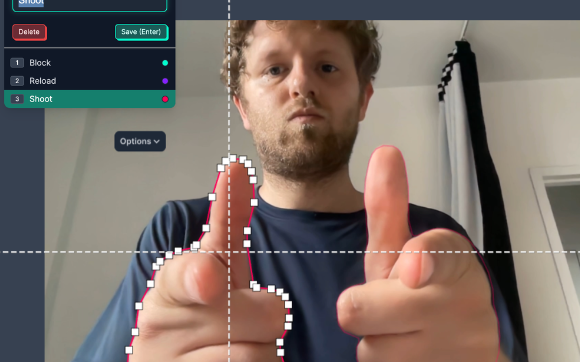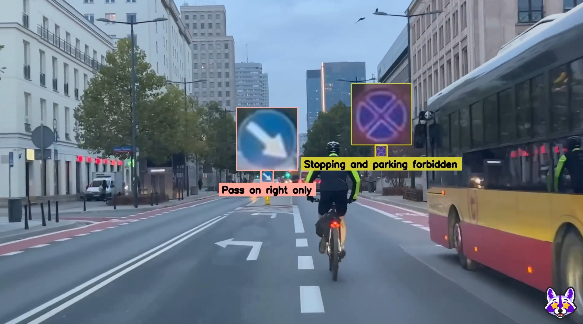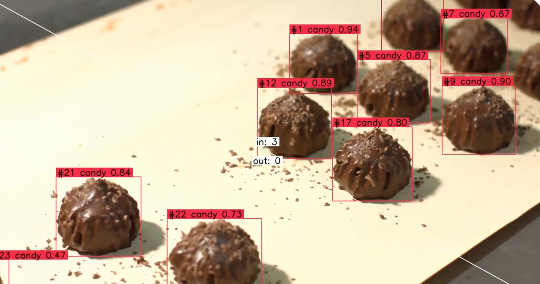 AI
AI
 AI
AI
 AI
AI
Visual artificial intelligence development startup Roboflow Inc. said today it has closed on a $40 million round of funding to continue building the tools developers need to make more advanced AI systems that can see and understand the world.
Today’s Series B round was led by GV and saw participation from Craft Ventures and Y Combinator, along with Vercel AI Inc.’s Guillermo Rauch, Google LLC’s Jeff Dean and Replit Inc.’s Amjad Masad.
The startup has created a comprehensive visual AI development platform that aims to simplify the process of building computer vision models and integrating them into applications. The startup began life as a tool for managing large image sets but has evolved into a solution that provides everything teams need to go from raw image and video data to production-ready vision AI applications. It provides tools for dataset understanding, automated data labeling, model training, fine-tuning and deployment and more.
In essence, Roboflow offers developers a step-by-step process for building computer vision into their products, so they can start with uploading the kinds of images or videos they want their application to understand, find a suitable model and train it to work properly.
The platform enables users to annotate images, assess the quality of their datasets, generate new training data and explore different configurations to see which ones best improve the performance of their models. Once the training process is done, Roboflow simplifies deployment of the finished app to the cloud, edge or even a web browser, and can monitor its performance over time to notify users of degradation.
In a blog post, Roboflow co-founder and Chief Executive Joseph Nelson reeled off a list of examples of the kinds of applications users have already built with its platform. They include medical imaging applications for diagnostics, early wildfire detection systems for firefighters and monitoring systems for coral reefs. Individuals can even create an app that monitors an RTSP feed and tell it to email them when a package arrives on their doorstep, Nelson said.

“Visual AI is a platform-level shift similar in impact to the cloud and internet itself,” Nelson said. “As software eats the world, a rate limiter is the speed at which computers can understand the visual world.”
What Roboflow does is use AI to help devices make sense of the world they see, and it has been incredibly successful in that endeavor, with more than 25,000 companies and over one million developers using its open-source tools. Moreover, it has built up a vast collection of more than 500,000 image and video datasets that anyone can use, with over 500 million images and 150,000 pretrained computer vision models available. Users on Roboflow have consumed more than one million graphics processing unit hours to further advanced open-source computer vision.
Nelson explained his belief that visual understanding will become a primitive that almost every company will rely on, noting that enterprises already have petabytes of underused visual data assets. “[There are] millions of cameras deployed globally, and billion-dollar startups are being built in markets that didn’t exist five years ago, thanks to computer vision,” he said.
An example of this is the startup Relo Metrics Inc., which uses computer vision AI for real-time ad attribution and return on investment in live broadcasts. Previously this was impossible to do.

“What previously was prohibitively uneconomic — cataloging the exact seconds a logo is aired alongside showing a scoreboard during a sports broadcast — is now possible,” he said.
Another customer is Pella Corp., one of the world’s largest manufacturers of windows and doors, which is using Roboflow to create computer vision models that can check on the quality of its products as they come off the production line.
“Maintaining an innovative edge is critical to our strategy at Pella Corporation, and advancements in AI represent an unprecedented opportunity to optimize manufacturing processes and quality controls,” said Pella Chief Information Officer Travis Turnball. “Roboflow has been instrumental in accelerating our learning and deployment of innovative AI solutions to achieve our goal of leading the industry in product quality and delivery for our customers.”
Roboflow said the funding from today’s round will go toward accelerating research and development, particularly building out the open-source tools it offers, and expanding its community. The company will also look to expand its product, engineering and go-to-market teams.
Support our mission to keep content open and free by engaging with theCUBE community. Join theCUBE’s Alumni Trust Network, where technology leaders connect, share intelligence and create opportunities.
Founded by tech visionaries John Furrier and Dave Vellante, SiliconANGLE Media has built a dynamic ecosystem of industry-leading digital media brands that reach 15+ million elite tech professionals. Our new proprietary theCUBE AI Video Cloud is breaking ground in audience interaction, leveraging theCUBEai.com neural network to help technology companies make data-driven decisions and stay at the forefront of industry conversations.